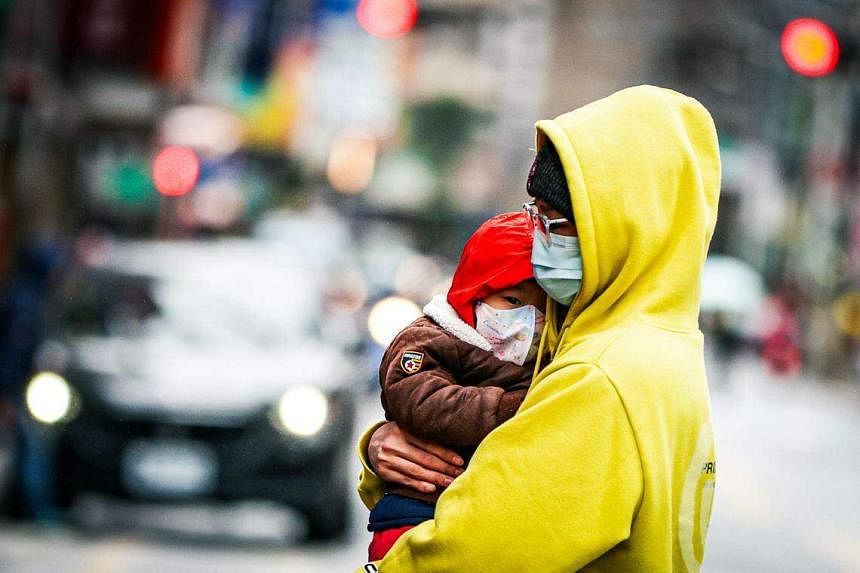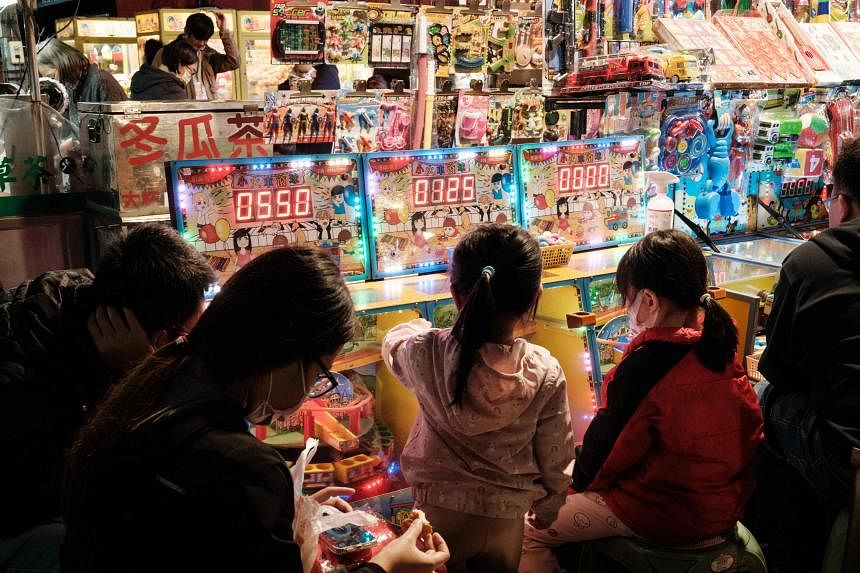TAIPEI – English language tutor Lin Yu-syuan is in no hurry to get married and have children.
The 28-year-old Taiwanese is in a relationship, but baulks at the “notion that Taiwanese women have to do all the housework after getting married, and be good daughters-in-law”.
“I value my freedoms,” she told The Straits Times.
If a baby comes along, she said she might work out a co-parenting situation without officially registering for marriage, but fears opposition to the plan from her family.
Taiwan is facing a worsening fertility crisis, with a plummeting birth rate that is set to become the world’s lowest by 2035, according to government projections.
In 2022, Taiwan’s total fertility rate was 0.87 children per woman, among the world’s lowest; the global average was 2.3.
Like other East Asian economies, the downward trend has implications for Taiwan’s economic security, with an impending labour shortage amid a rapidly ageing population.
The issue was in the spotlight during the island’s recently concluded elections, when the three presidential candidates – all men – pledged to address Taiwan’s fertility woes, as the number of births on the island hit a record low of 135,571 in 2023.
President-elect Lai Ching-te of the ruling Democratic Progressive Party promised to continue childcare subsidies for children aged up to six, including raising the amounts for babies up to 24 months old.
Mr Hou Yu-ih of the main opposition Kuomintang pledged to make services at public childcare centres free altogether, on top of a cash bonus for three-child families; Dr Ko Wen-je of the smaller Taiwan People’s Party proposed a pregnancy bonus, among other things.
“Most of the proposals were just about throwing money at the problem, which is not enough,” said National Taiwan University Professor Wang Lih-rong, a sociologist who has done extensive research on Taiwan’s fertility issues.
“What’s harder to overcome are gender stereotypes and the invisible hand of patriarchy.”
Taiwan enjoys a reputation as one of Asia’s most progressive democracies, with high female representation in politics.
But there remains a wide gap between gender equality in the public versus private spheres, said Prof Wang, who described Taiwan as a “very conservative society” informed by Confucianism.
“This can only be resolved with education and shifting attitudes, which is going to take a long time,” she added.
Ms Aki Iida, a gender studies researcher at Japan’s Nara Women’s University, said Taiwanese women are still trapped by traditional ideas of what a woman’s role should be when it comes to housework, childcare and caregiving duties at home.
She conducted a study on the topic in 2022, interviewing 43 university-educated Taiwanese women aged between 30 and 40 years old.
“Almost without exception, the women expressed concerns about deviating from the ideal image expected by their communities, which is to be a good wife or daughter. In particular, they said that it was stressful dealing with a mother-in-law,” she told ST.

With little effort made at changing the patriarchal mindset and shifting gender roles, it is no surprise that the Taiwanese are getting married later than ever. The average age of a first marriage for women was 30.7 in 2022, up from 26.8 two decades earlier in 2002.
“Women are often expected to take primary responsibility for childcare, so they either choose to delay or not get married at all to pursue their careers and their lifestyles first,” said Prof Wang.
“In other instances, they cannot find the right partner. By the time they settle down and start a family, the reality is that it might be more challenging biologically for them to have children.”
At age 34, Taiwanese hairstylist Nina Song is racing against time to find her Mr Right and start a family with him.
“I want to have a baby, but I feel like my time is running out,” she told ST, adding that she is determined to go on at least one date a week in her quest for a life partner.
Being a single mother is out of the question for her.
“My family is very traditional. If I had a child without getting married first, it would be considered shameful,” she said.
She added that she is considering freezing her eggs, which is allowed for single women in Taiwan.
Experts are cautiously optimistic about a potential spike in births in the upcoming Dragon Year – traditionally considered the most auspicious Chinese zodiac year – which begins on Feb 10.
In the previous Dragon Year in 2012, 229,481 babies were born in Taiwan, an increase of more than 37 per cent from the 166,886 newborns in the year earlier. But the number dropped to 194,939 in 2013.
Prof Wang said: “There might be a small bump this year with Dragon babies, but I’m afraid that the overall trend of declining births will not stop.”
The expectation for mothers to be primary caregivers also makes it hard for them to return to work, another reason some women think twice about marriage or childbirth.
Ministry of Labour statistics show that Taiwan’s female labour force participation rate of 51.5 per cent trails behind even the 53.5 per cent recorded by Japan and South Korea. The global average is 52.9 per cent, according to the World Bank.

In all three places, the rate peaks among women aged 25 to 29. But while Taiwan’s rate continues to decline after that, female labour force participation in Japan and South Korea sees a gradual recovery among those aged 35 to 39.
Professor Cheng Yen-hsin from the Institute of Sociology at Taipei’s Academia Sinica said: “It’s easy to look at the fertility rate and just conclude that no one wants to have children.
“But the truth is that most couples do have children after marriage, with more than 70 per cent of them having two or more.”
She pointed out that Taiwan’s low fertility rate is closely linked to its declining marriage rate.
In 2021, the marriage rate fell to a record low of 4.87 marriages per 1,000 people, down from the 7.1 recorded 10 years earlier in 2011.
For many young Taiwanese, economic concerns stand in the way of starting a family – or even tying the knot.
In a March 2023 survey of those aged 15 to 49 by Taiwanese magazine Business Today, 70 per cent of respondents said that they were worried they would not be able to support their children financially if they were to have any.
Separately, 43.4 per cent of those surveyed said that they wished to delay marriage, or not get married at all, due to the challenges of buying an apartment or home. This comes as housing prices have soared while salaries have remained stagnant for years, in a society where purchasing a home before starting a family is the norm.
Taiwan’s housing price-to-annual-income ratio in 2023 hit a record high of 9.82 – with the ratio in Taipei reaching 15.52, which meant that it would take a person more than 15 years to afford a home in the capital.
Digital procurement officer Chen Yu-sin said this is one of the most significant factors influencing her and her peers’ decisions to have children.
“Many of those around me want to have kids, but they don’t have the money to do so. To buy a house, to get married, and to raise children – these are all huge expenses,” said the 29-year-old.
Ms Chen, who is in a relationship, is saving up with plans to get married and have two children. She will also leave work to stay home to look after them herself, though it has nothing to do with gender expectations.
“I love children and I really want to be there while they grow up,” she said.


